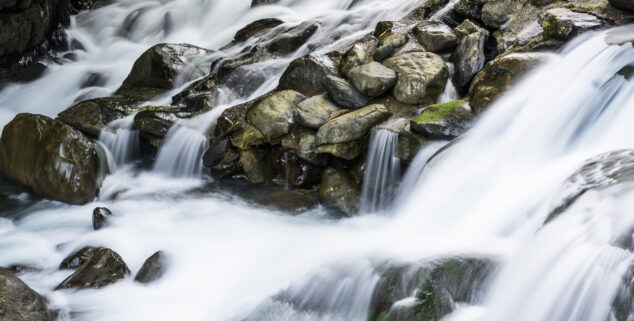Opinion
Water security for Californians means protecting source waters
 Image by Bing-Jhen Hong
Image by Bing-Jhen HongOPINION – Many Californians are familiar with the water infrastructure that connects our state. We’ve driven over canals and enjoyed activities on or near the many reservoirs that supply water to our crops and homes. Yet, many of us are unfamiliar with the incredible places where our water originates.
In far Northern California lies one such place where water begins its journey as snow that seeps into deep aquifers, and eventually emerges on the surface as springs. This place is known as Sáttítla to the Pit River Tribe. In the world of conservation, we call these places where water originates source water areas. In times of recurring droughts and rising temperatures, these aquifers and spring systems are becoming even more essential to our state’s water future – but they are in danger. If we don’t protect these places, California’s water security, natural landscapes, and iconic species are at risk.
Not only is Sáttítla home to crucial water resources, but it has been cherished for its cultural and ecological value since time immemorial. The Pit River Tribe is leading an effort to have Sáttítla designated as a national monument. The Tribe has led a continuous effort to defend Sáttítla from geothermal development, and a national monument designation would honor the Tribe’s longstanding efforts while protecting the precious resources in this area.
Sáttítla’s unique volcanic spring network is a critical water source for all Californians. The aquifers beneath the surface store more water than California’s 200 largest surface reservoirs combined. These spring systems flow into rivers that carry water to Shasta Lake, California’s largest reservoir. From there, that water travels down the state on a remarkable and lengthy passage, nourishing crops and homes hundreds of miles south.
The importance of this region is further illustrated by a recently launched groundwater assessment by CalTrout, Lawrence Livermore National Laboratory, and university partners. This scientific effort will help us better understand the impact of drought patterns on spring source water areas to inform future water management for people and fish.
We know that a few good water years do not end our water concerns. Drought in the western United States continues to jeopardize water security and source water areas are more at risk than ever. These areas are threatened by aquifer overdraft, pollution, geothermal fracking, hydropower operations, and more.
Obtaining this designation for Sáttítla will put an end to the ongoing threat of geothermal development that could greatly reduce water availability for future generations. These water sources are critical to protect at a federal and state level for so many reasons – groundwater from volcanic aquifers such as the one below Sáttítla keep rivers flowing when there is a lack of rain and snow, increasing climate resilience in the face of drought and high temperatures. These spring systems also provide base flows and cold water temperatures during the heat of the summer, providing stable spawning grounds and habitat for cold-water fish and other aquatic life making this region rich in recreational value.
Anglers come from across the nation to fish the Fall River complex, fed by springs originating from Sáttítla. The existence of this robust recreation economy is directly tied to the health of these spring and river systems. These world class wild trout fisheries thrive due to the unique, consistent flows provided by these year-round spring systems.
We stand with Senator Alex Padilla in calling on the President to protect Sáttítla as a national monument, following the trajectory set by bipartisan adoption in the California Legislature of Senate Joint Resolution 16 calling on the President to act.
We can’t afford to ignore these critical landscapes and their connection to our everyday lives. We urge the Biden administration and other federal and state decision-makers to listen to communities across California and take swift action starting with these critical designations.
Redgie Collins is the Legal and Policy Director for California Trout, a statewide conservation organization working to solve the state’s resource issues for the benefit of fish, water, and people.
Want to see more stories like this? Sign up for The Roundup, the free daily newsletter about California politics from the editors of Capitol Weekly. Stay up to date on the news you need to know.
Sign up below, then look for a confirmation email in your inbox.

Leave a Reply